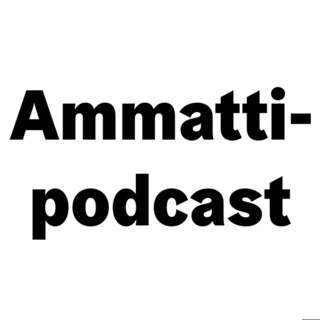
97 - Kevin Hassett on Growth, Technological Change, and the Trump Administration's Economic Policies
Kevin Hassett is the chair of President Trump's Council of Economic Advisers, a former scholar at the American Enterprise Institute, a professor at Columbia University, and a Fed Economist. Kevin has also advised John McCain, George W. Bush, and Mitt Romney on their presidential campaigns. Today, he joins the show today to outline some of the big issues of the past and present facing the U.S. economy. Kevin argues that Obama administration policies exacerbated the sluggish nature of the recovery from the Great Recession and explains how he thinks President Trump's policies on taxes, deregulation, and infrastructure will lead to stronger economic growth. David's blog: macromarketmusings.blogspot.com David's Twitter: @DavidBeckworth Kevin's AEI profile: https://www.aei.org/profile/kevin-a-hassett/ Kevin's White House profile: https://www.whitehouse.gov/cea/staff/ Related Links: *2018 Economic Report of the President* https://www.whitehouse.gov/briefings-statements/growing-american-economy-economic-report-president/ *Obama Inconsistent on Pace of Economic Recovery* by Kevin Hassett and Glenn Hubbard https://www.washingtonpost.com/opinions/obama-inconsistent-on-pace-of-economic-recovery/2012/08/14/45533a3c-e627-11e1-936a-b801f1abab19_story.html?utm_term=.684bf28b0d63
5 Maalis 201843min

96 – Brink Lindsey and Steven Teles on Rent-Seeking and the Twin Melees Afflicting the U.S. Economy
Brink Lindsey is the Vice President and Director of the Open Society Project at the Niskanen Center, and Steven Teles is a Professor of Political Science at Johns Hopkins University and a Senior Fellow at the Niskanen Center. Today, they join the show to discuss their new book, *The Captured Economy: How the Powerful Enrich Themselves, Slow Down Growth, and Increase Inequality.* For Lindsey and Teles, slow growth and inequality are "twin melees" that are harming the economy. They discuss some of the issues at the root of these problems, including excessive occupational licensing laws and zoning regulations, as well as some ways to fix them. David's blog: macromarketmusings.blogspot.com David's Twitter: @DavidBeckworth Brink's Twitter: @lindsey_brink Brink's Niskanen profile: https://niskanencenter.org/blog/staff/brink-lindsey/ Steven's Niskanen profile: https://niskanencenter.org/blog/staff/brink-lindsey/ Related links: *The Captured Economy: How the Powerful Enrich Themselves, Slow Down Growth, and Increase Inequality* by Brink Lindsey and Steven Teles https://global.oup.com/academic/product/the-captured-economy-9780190627768?cc=us&lang=en&
26 Helmi 201857min

95 – George Selgin on Fed Floors, Corridors, and Interest on Excess Reserves
George Selgin is the Director of the Cato Institute Center for Monetary and Financial Alternatives and Professor Emeritus of Economics at the University of Georgia. Today, George joins the show to discuss the shrinking of the Fed's balance sheet, the difference between corridor and floor systems in monetary policy, and the Fed's practice of paying interest on excess reserves. David and George also discuss the issues of legality surrounding interest on reserves as well as why the Fed prefers a floor system to a corridor system and why George doesn't! David's blog: macromarketmusings.blogspot.com David's Twitter: @DavidBeckworth George's Twitter: @GeorgeSelgin George's Alt-M Archive: https://www.alt-m.org/author/selgin/
19 Helmi 201855min

94 - Mike Konczal on Expanding the Fed's Monetary Toolkit
Mike Konczal is a fellow at the Roosevelt Institute where he works on financial reform, unemployment, inequality, and a progressive vision of the economy. He has also recently co-authored a paper with J.W. Mason titled, "A New Direction for the Federal Reserve: Expanding the Monetary Policy Toolkit." Today, Mike joins the show to discuss the progress of financial regulation, the Federal Reserve's performance over the past decade, and new tools the Fed could utilize to better stabilize the economy in the present and future. David's blog: macromarketmusings.blogspot.com David's Twitter: @DavidBeckworth Mike Konczal's Twitter: @rortybomb Mike Konczal and J.W. Mason's Paper: http://rooseveltinstitute.org/expanding-monetary-policy-toolkit/
12 Helmi 201857min

93 – Neel Kashkari and Ron Feldman on the Minneapolis Plan and Monetary Policy Reform
Neel Kashkari is President and Chief Executive Officer of the Federal Reserve Bank of Minneapolis, and Ron Feldman is the first vice president and chief operating officer of the Federal Reserve Bank of Minneapolis. Today, they join the show to describe the Minneapolis Plan to End Too Big to Fail, the Minneapolis Fed's proposal to end the problem of systemic risk to the economy posed by excessively large financial institutions. Neel also shares his thoughts on improving Fed transparency and monetary policy. Disclaimer: Unfortunately, we had some audio problems during the recording, but because this conversation is so important and interesting we wanted to bring it you anyway. And, if you prefer, we've also made a transcript, which is linked to below. Transcript of today's conversation https://www.mercatus.org/podcasts/neel-kashkari-ron-feldman-minneapolis-plan-monetary-policy-reform *The Minneapolis Plan to End Too Big to Fail* https://www.minneapolisfed.org/publications/special-studies/endingtbtf Neel Kashkari's Twitter: @neelkashkari Ron Feldman's Twiiter: @ronjfeldman Minneapolis Fed's Twitter: @MinneapolisFed Neel Kashkari's Medium: https://medium.com/@neelkashkari David's blog: http://macromarketmusings.blogspot.com/ David's Twitter: @DavidBeckworth
5 Helmi 201849min

92 - Ángel Ubide on Getting Central Banks Out of Their Comfort Zones
Ángel Ubide is a Managing Director at Goldman Sachs and formerly was a Senior Fellow at the Peterson Institute for International Economics. Today, he joins the show to discuss his new book *The Paradox of Risk: Leaving the Monetary Policy Comfort Zone.* Ángel argues that the Federal Reserve has become too afraid to take risks when implementing new policies. Instead, he offers alternative proposals aimed to move monetary policy out of its comfort zone. David and Ángel also discuss the Eurozone crisis, the ECB, and using more effective communication, accountability, and greater transparency to minimize biases within monetary policy. David's blog: macromarketmusings.blogspot.com David's Twitter: @DavidBeckworth Ángel Ubide's Twitter: @AngelUbide Ángel Ubide's book: https://cup.columbia.edu/book/the-paradox-of-risk/9780881327199 "The Latest Central Bank Fad: Asymmetric Inflation Targeting" by David Beckworth(Bull's Eye images of symmetric and asymmetric targets) http://macromarketmusings.blogspot.com/2016/01/the-latest-central-bank-fad-asymmetric.html
29 Tammi 20181h 3min

91 - Jesse Eisinger on the Financial Crisis and the Department of Justice
Jesse Eisinger is a senior reporter and editor at ProPublica as well as a Pulitzer Prize winner. Today, he joins the show to discuss his new book *The Chickenshit Club: Why the Justice Department Fails to Prosecute Executives.* Jesse argues that in recent years, the U.S. Justice Department has become excessively timid in prosecuting white collar crime on Wall Street and in the financial sector. David and Jesse discuss why this is a problem for the rule of law as well as some ways to reform the system. [To rate and review this podcast, go to: itunes.apple.com/us/podcast/macro…d1099277290?mt=2 Then, leave your information at: www.mercatus.org/macromusings ] David's blog: macromarketmusings.blogspot.com Macro Musings podcast site: macromusings.com David's Twitter: @DavidBeckworth Jesse Eisinger's Pro Publica Profile: https://www.propublica.org/people/jesse-eisinger Jesse Eisinger's Twitter: @eisingerj Related links: *The Chickenshit Club: Why the Justice Department Fails to Prosecute Executives* http://www.simonandschuster.com/books/The-Chickenshit-Club/Jesse-Eisinger/9781501121364
22 Tammi 20181h 8min

90 – Sarah Binder and Mark Spindel on Fed History and the Myth of Its Independence
Sarah Binder is a professor of Political Science at George Washington University and a Senior Fellow at the Brookings Institution. She research focuses on Congress, Congressional development, and political parties. Mark is the founder and chief investment officer at Potomac River Capital LLC, and formerly was with the World Bank. Today, they join the show to discuss the history and politics behind the creation of the Fed as well as their new book, *The Myth of Independence: How Congress Governs the Federal Reserve.* [To rate an review this podcast, go to: itunes.apple.com/us/podcast/macro…d1099277290?mt=2 Then, leave your information at: www.mercatus.org/macromusings ] David's blog: macromarketmusings.blogspot.com Macro Musings podcast site: macromusings.com David's Twitter: @DavidBeckworth Sarah Binder's Brookings profile: https://www.brookings.edu/experts/sarah-a-binder/ Sarah Binder's Twitter: @bindersab Mark Spindel's Twitter: @potomac Related links: *The Myth of Independence: How Congress Governs the Federal Reserve* by Sarah Binder and Mark Spindel https://press.princeton.edu/titles/11123.html
15 Tammi 20181h 1min






















